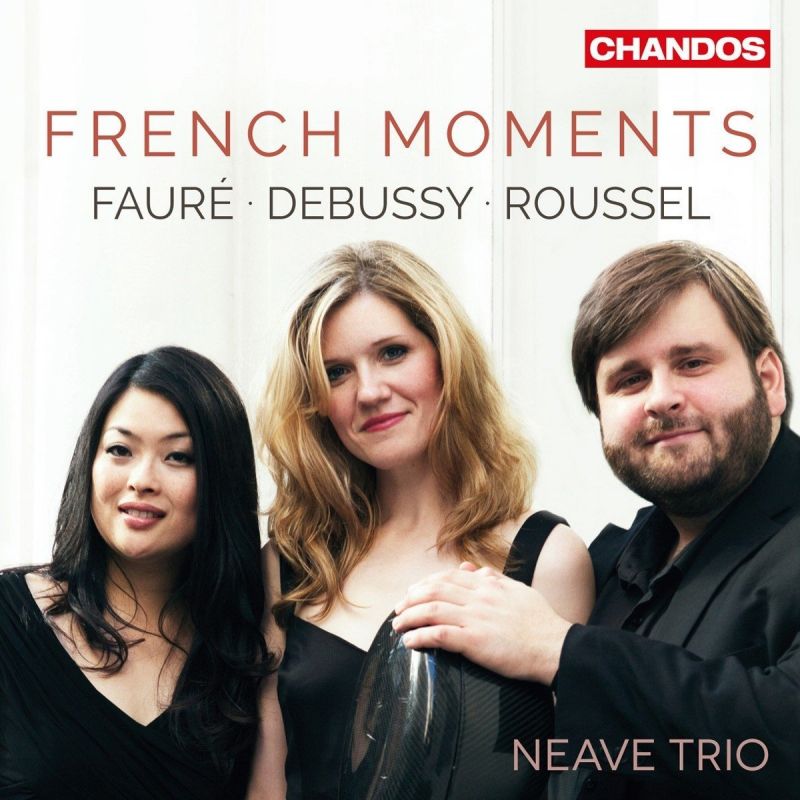Neave Trio: French Moments
View record and artist detailsRecord and Artist Details
Composer or Director: Claude Debussy, Gabriel Fauré, Albert (Charles Paul Marie) Roussel
Genre:
Chamber
Label: Chandos
Magazine Review Date: 08/2018
Media Format: CD or Download
Media Runtime: 70
Mastering:
DDD
Catalogue Number: CHAN10996

Tracks:
| Composition | Artist Credit |
|---|---|
| Trio |
Albert (Charles Paul Marie) Roussel, Composer
Albert (Charles Paul Marie) Roussel, Composer Neave Trio |
| Premier trio |
Claude Debussy, Composer
Claude Debussy, Composer Neave Trio |
| Piano Trio |
Gabriel Fauré, Composer
Gabriel Fauré, Composer Neave Trio |
Author: Tim Ashley
Its companion pieces, meanwhile, came early in their respective composers’ careers. Debussy’s Trio, written in 1882 when he was a member of Nadezhda von Meck’s entourage, bears scant resemblance to his later music, and sounds sometimes like Saint-Saëns, sometimes like Delibes. Roussel’s Op 2, an ambitious exercise in cyclic form, dates from his years at the Schola Cantorum and carries greater intimations of what was to follow, not least in its opening, which seems to slide from silence into sound as the principal theme coalesces over oscillating figurations and slowly shifting harmonies. The Neaves’ Debussy is all sparking elegance and wit, though they can’t disguise the fact that the first movement is too long for its own good. In the outer movements of the Roussel, the tricky balance between form and emotion sometimes slips in favour of the latter, though the slow movement, with its closely woven string counterpoint over insistent piano chords, has a dark intensity and is most beautifully done.
Discover the world's largest classical music catalogue with Presto Music.

Gramophone Digital Club
- Digital Edition
- Digital Archive
- Reviews Database
- Full website access
From £8.75 / month
Subscribe
Gramophone Full Club
- Print Edition
- Digital Edition
- Digital Archive
- Reviews Database
- Full website access
From £11.00 / month
Subscribe
If you are a library, university or other organisation that would be interested in an institutional subscription to Gramophone please click here for further information.




